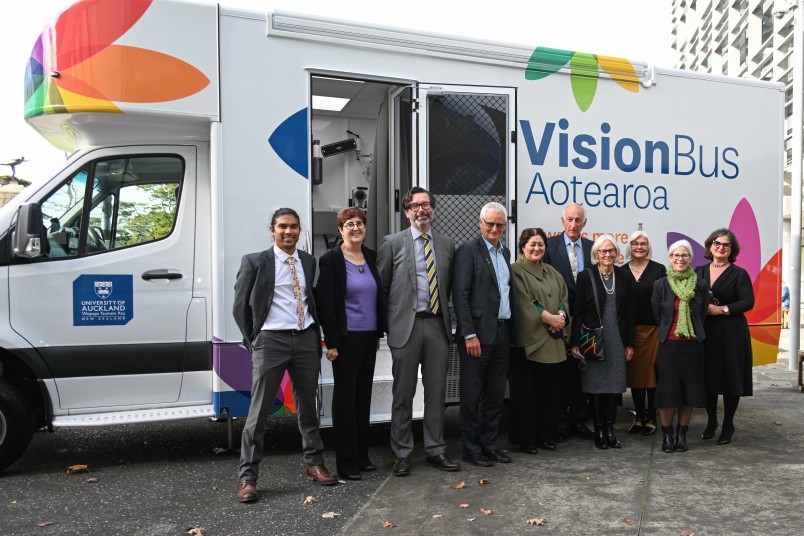Vision Bus Aotearoa
E nga mana, e nga reo, e nga iwi o te motu e huihui nei, tēnei aku mihi nui ki a koutou. Kia ora tātou katoa.
I particularly acknowledge:
Vice-Chancellor Professor Dawn Freshwater
Professor John Fraser, Dean of the Faculty of Medical and Health Sciences
Professor John Hosking, Dean of the Faculty of Science
Professor Steven Dakin, Head of School, Optometry and Vision Science
Tēnā koutou katoa.
Thank you for inviting me to be part of the launch of a wonderful project that is going to change lives and inform both professional training and policy development.
It’s a pleasure to return here today to the University of Auckland, Waipapa Taumata Rau.
It was a privilege to have worked here alongside some truly remarkable people – both staff and students.
You will not be surprised to learn that a strong focus of my programme while I am Governor-General, aims to foster and promote expert knowledge generated by our tertiary and research institutions.
As many of you know, I was briefly Chief Executive of the Royal Society Te Apaparangi, supporting research – always with the hope and expectation that it would better inform our decisions and actions.
Clearly, if we don’t fully understand the scope and nature of the problems we face, or the options available to us, we can’t appropriately and effectively respond. I know that many in academia also seek ways to ensure that their research is able to inform public policy, peoples’ decisions and contribute to our wealth of knowledge.
Hapaitia te ara tika pumau ai te rangatiratanga mo nga uri whakatipu.
This whakatauki urges us to foster the pathway of knowledge to strength, independence, equity and growth for our future.
Vision Bus Aotearoa ticks so many of these boxes – training our young professionals, changing lives, and providing valuable data that can feed into professional development and public health initiatives in the future.
The pandemic has presented the world with a steep learning curve in dealing with a global pandemic. One of the many lessons learned here, has been the need for evidence-based approaches alongside flexible delivery, particularly for Māori, Pasifika and rural communities.
As someone who spent her youth in West and South Auckland, I can well understand how some communities may not be accessing current vision checks, let alone acting on the diagnosis and seeking the treatment that they need. We must find ways to change this so that they are able to easily do so.
And as a mother and grandmother, I am acutely aware of the importance of health checks that will make all the difference when it comes to a child’s ability to participate in education and sporting activities – and how critical it is to know what needs to be treated, and to treat it promptly, so that children can then have the best chance to take their place amongst their peers.
I congratulate the School of Optometry and Vision Science for conceiving of this plan to take vision checks out into the community – and I sincerely thank the people whose generosity helped make it happen.

